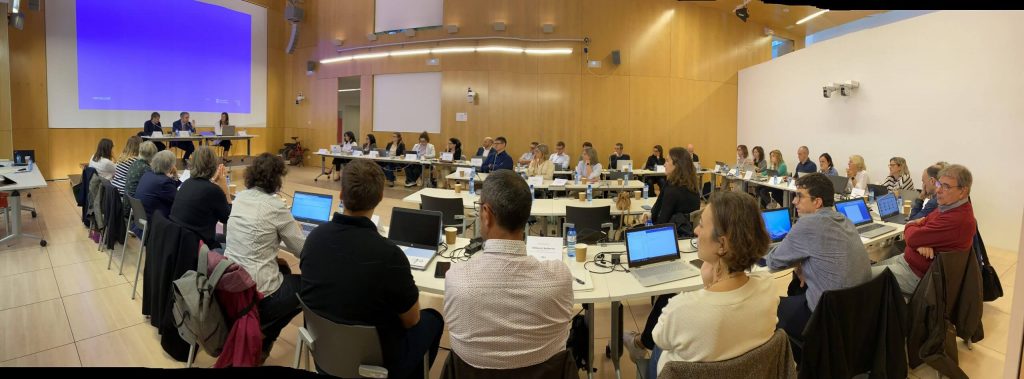Last year, the presidents of the Max Planck Society and the French National Centre for Scientific Research (CNRS) organised a meeting in Brussels with a number of public and private research stakeholders in Europe. Among them were the French National Institute of Health and Medical Research (INSERM), Helmholtz, Leibniz, the French Alternative Energies and Atomic Energy Commission (CEA), the Spanish National Research Council (CSIC), the Swiss Federal Institute of Technology Lausanne (EPFL), ETH, the University of Oxford, the University of Oslo, Sapienza University, Katholieke Universiteit Leuven, TOTAL, SOLVAY and SIEMENS, among others.
The meeting produced a declaration establishing positions and conclusions on the following main points:
- Centres of excellence must be strengthened to safeguard Europe’s research and capacity for innovation.
- Europe should focus on disruptive innovations rather than small incremental changes to existing technologies.
- High priority should be given to cultivating new researchers and nurturing and stimulating the brightest brains in a context of freedom to do the science they want and attracting them by offering the best scientific infrastructure.
- The social sciences and humanities should be reaffirmed as essential for finding solutions to major global challenges.
- Global competition demands research funding, at the national and European levels, which is exclusively geared to scientific excellence, and the European Union framework programmes should increase their funding and not replace cuts to state funding or deter states from providing research expenditure at 3% of GDP.
There is no doubt that the meeting was held at a strategic time when pressure had to be put on the EU and Member States to allocate more money to Horizon Europe. It is also true that the CNRS needs more support from the French State to try to sustain the quality of its research, as its funding problem is becoming structural. By contrast, the Max Planck Society continues to receive expanding support from the Federal State and the Länder, reaching 84.7% in 2017. Be that as it may, we at the CERCA Institute recently contacted the Max Planck Society to tell them we are fully aligned with the resulting declaration. They replied by saying they will take us into account in future initiatives. I think that the CERCA Institute has much we can explain and share, and getting involved in the dynamics of decision-making and consultation in Europe is a very positive move. We intend to do this in accordance with the internationalisation objectives in our Statutes.



